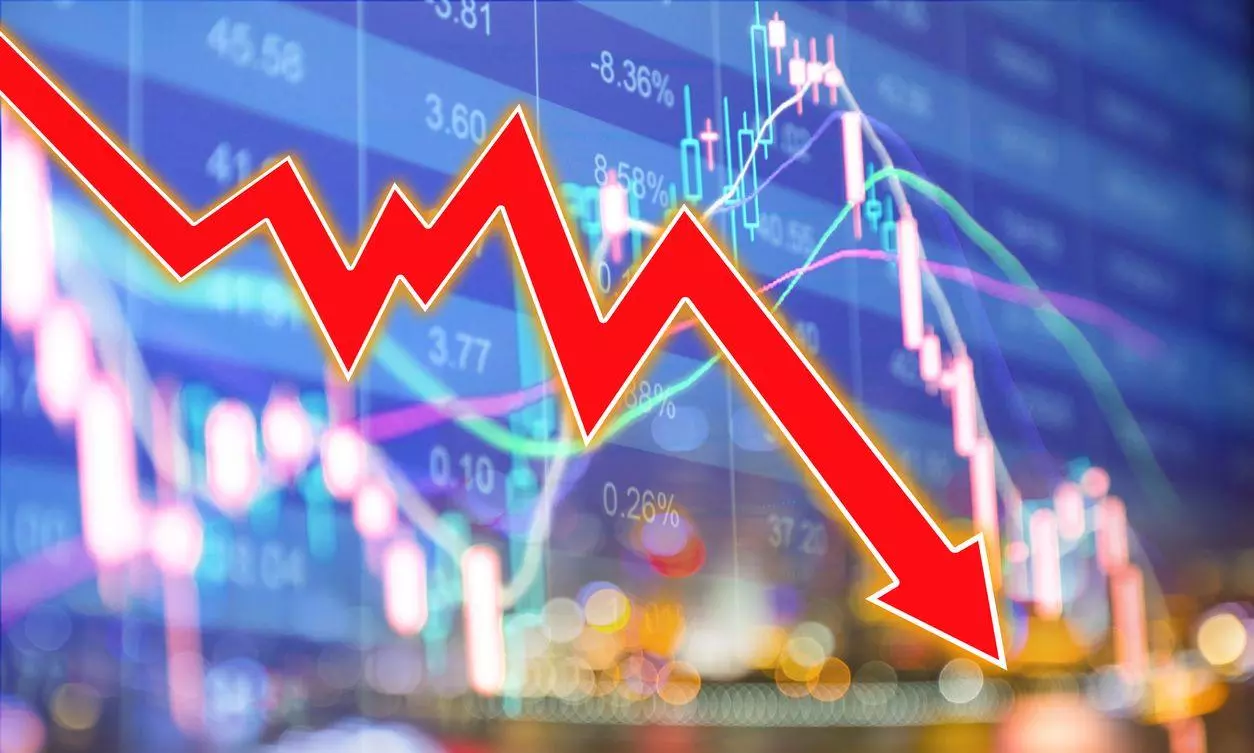
Bloodbath in stock market: Sensex, Nifty fall by 4%
This sudden and drastic drop reflected the market's anxiety and uncertainty regarding the election outcome

The stock market is experiencing a bloodbath, with the Nifty seeing its biggest single-day fall since February 2022, and its biggest fall in a decade.
The Nifty was down 929.80 points, or 4 per cent, at 22,334.10, while the Sensex had slipped 3570 points, or 4.47 per cent, to 72,952.
The Sensex, a key indicator of the market's performance, plummeted by a staggering 2,700 points within the first 90 minutes of counting resulting in ₹14,000 crores of investors' wealth being wiped out. This sudden and drastic drop reflected the market's anxiety and uncertainty regarding the election outcome.
Adani shares take significant hit
Adani Enterprises’ shares also took a significant hit as the counting progressed, plummeting by over 5 per cent. This unexpected downturn caught many investors off guard, leaving them scrambling to adjust their portfolios.
By around 10 am, the Nifty had already dipped by 2.31 per cent, losing 536.25 points. The index struggled to stay above the 22,400 mark but succumbed to the pressure, dipping below it as the day wore on.
Rupee feels impact of market’s volatility
The rupee also felt the impact of the market's volatility, falling by 24 paise to 83.38 against the US dollar in early trade. This decline was a clear indication of the market's growing unease and lack of confidence in the Indian economy.
The Sensex, steadily rising in the days before the elections, suddenly nosedived by 2,100 points, dragging the Nifty below the 22,700 mark. This dramatic drop was a stark reminder of the market's sensitivity to political developments and the uncertainty surrounding the elections.
Investors increasingly apprehensive
As the day progressed, investors became increasingly apprehensive, with many choosing to adopt a cautious approach and liquidate their positions. The market's volatility was a clear sign of the uncertainty surrounding the elections and the potential impact they could have on the Indian economy. Despite the market's turbulence, many analysts have maintained their optimism about the Indian economy's long-term prospects. They reiterated that the country's growth narrative was still intact and that the elections would ultimately have a limited impact on the market's performance.
Uncertainty about BJP’s performance
On Monday (June 3), the day before the counting began, the Sensex surged over 2,500 points or 3.3 per cent to close at a record high of 76,468.8. This was driven by exit polls predicting a victory for PM Narendra Modi's government. The Nifty also gained over 2.7 per cent to close at 23,148.05. However, in the five trading sessions before June 3, the Nifty had declined by nearly 2 per cent due to uncertainty surrounding the BJP's performance in the elections and foreign investors building bearish positions. The strong Q1 GDP growth of 7.8 per cent year-on-year and S&P's upward revision of India's rating outlook provided fundamental support to the market.

